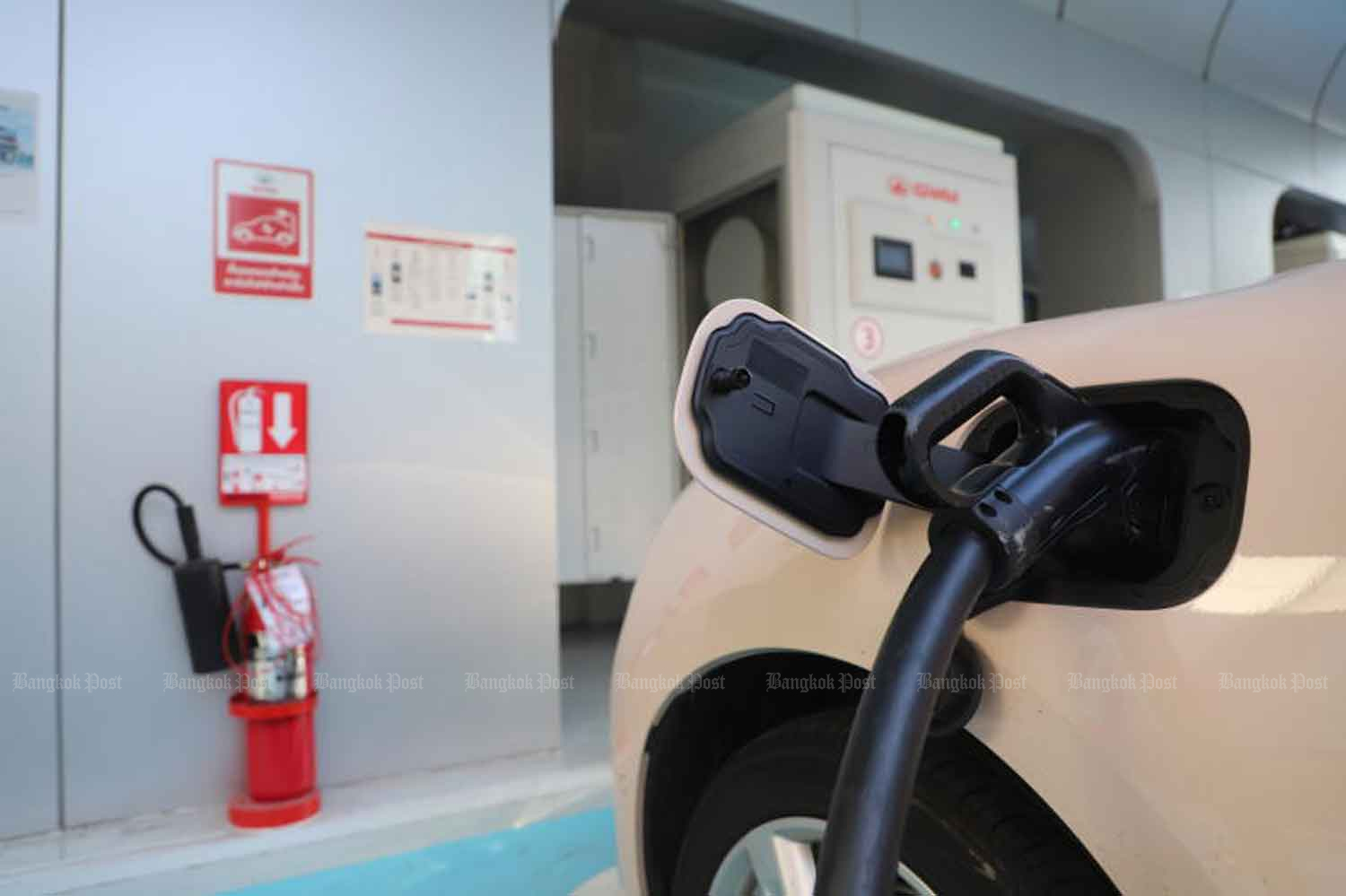
Electricity bills are likely to decline during the last four months of this year, with the power tariff expected to reach 4.30 or 4.40 baht per kilowatt-hour (unit), according to the Energy Policy and Planning Office (Eppo).
Households and businesses will pay 4.70 baht per unit from May 1 to Aug 31, a big drop for businesses from the first four-month cycle of the year but almost unchanged for households.
During the first four months, businesses paid 5.33 baht per unit, up 13% from the previous record high of 4.72 baht, while households paid 4.72 baht per unit.
Wattanapong Kurovat, the director-general of Eppo, attributed the projected decrease in power tariffs to higher domestic gas supply this year and a lowering of imported liquefied natural gas (LNG) prices.
PTT Exploration and Production Plc plans to increase gas production from its Erawan block in the Gulf of Thailand to 400-500 million metric standard cubic feet per day (MMSCFD) by the middle of this year, up from 200 MMSCFD at present.
Prices of imported LNG in the spot market are likely to fall despite higher demand for gas during the winter, said Mr Wattanapong.
He was speaking ahead of the third adjustment of the power tariff this year. Officials adjust the power tariff every four months.
The fuel tariff or Ft is a key component of the tariff, as it is determined based on the prices of fuels used to generate electricity in the country.
Gas makes up 57% of the fuels, followed by 19% from imported and domestic coal, 15% from the import of electricity from neighbouring countries, and 9% from renewable energy.
Mr Wattanapong said officials have asked power companies to consider waiving availability payments (AP) during the surge in fuel prices to tame expensive power bills.
He said the officials received a “silent response”.
Power purchase agreements, each lasting 25 years, made between the Electricity Generating Authority of Thailand (Egat) and power companies commit Egat to paying for electricity throughout the whole period. This is known as an AP, although the actual usage may be less during the agreed-upon time frame.
According to officials, AP makes up 16% of the power tariff of 4.70 baht a unit, while fuel costs account for 57%, or around 2.73 baht.
Some 10% comes from expenses incurred by retail distribution of electricity, 3.4% stems from the wholesale transmission cost, and 4% is money paid as a bonus tariff to promote renewable energy, contribute to the energy conservation fund, and provide a social fund for people living near power plants.
The remainder, around 0.278 baht per unit, is money paid back to Egat to settle its losses caused by its previous electricity price subsidy programme.